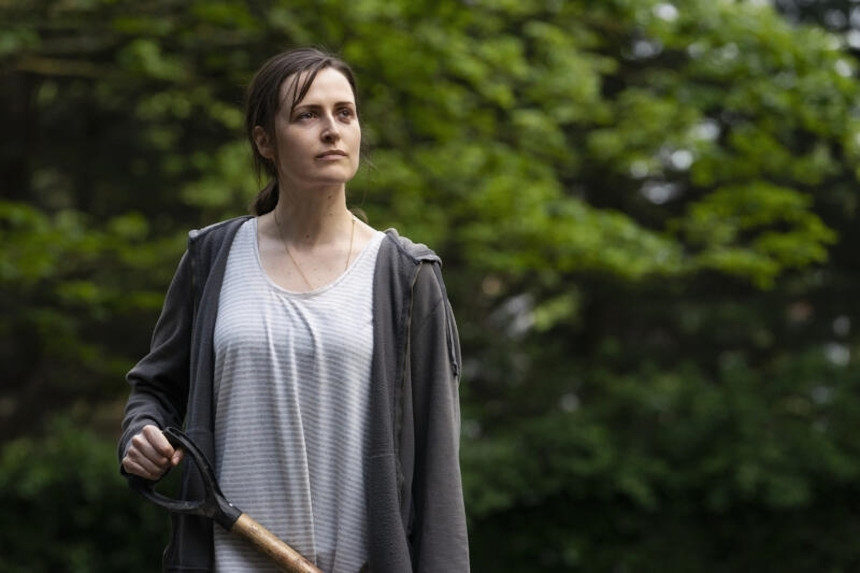Herself
⭐ ⭐ ⭐ ⭐
Rating: R
Run Time: 1 hour 37 minutes
Cast: Clare Dunn, Harriet Walter, Ian Lloyd Anderson, Conleth Hill)
Writers: Malcolm Campbell, Clare Dunn
Director: Phyllida Lloyd
Streaming on Amazon Prime
Have you ever had one of those years when nothing seemed to go right; when every day seemed to bring more bad news than the last; when hope seemed tantalizingly close, yet frustratingly out of reach?
Oh, yeah…I guess we all just did. But so does the central character of the stirring new film, Herself — and COVID-19 has nothing to do with it. What’s more, just like we all discovered in 2020, Herself reminds us that an admirable mix of personal pluck and community selflessness can go a long way to helping ease the trauma of a world gone askew.
British director Phyllida Lloyd has made a career of crafting big-budget, empowering stories about formidable women (Mamma Mia!, The Iron Lady). She’s in fine form here painting on a much more intimate canvas, unfolding the inspiring saga of Sandra (Clare Dunn, who also co-wrote the screenplay), a homeless Irish mother of two.
On the run from a savagely abusive partner Gary (Ian Lloyd Anderson), Sandra dreams of emerging from homelessness by self-building a tiny, affordable house on a plot of land given to her by a big-hearted doctor (Harriet Walter) whose house she cleans.
I don’t know about you, but I’m a sucker for movies brimming with good people, and there’s no shortage of salt-of-the-Earthers in Herself. Besides the generous doctor, there’s the architect who gives Sandra the plans for her cozy new digs, the approaching-retirement contractor (Conleth Hill) who donates his weekends to Sarah’s cause, his cheerful and resourceful son Francis (Daniel Ryan, a charming actor with Down syndrome), and the friends and friends-of-friends who abandon their personal lives to lend a leather-gloved hand.
At the center of this constellation of kindness is Sara, portrayed by Dunn as a fiercely determined mother fighting for her children’s future even as she suffers near-debilitating PTSD from her brutal relationship (we witness a savage beating at the hands of Gary early in the film; flashbacks remind us of Sarah’s continuing trauma). At times, we share her open-mouthed disbelief at the kindness of strangers, but Sara is no Blanche DuBois — we have no doubt that even were these generous Dubliners not lining up to lend a hand, Sara would be out there in the yard toiling away all by herself until the last nail was hammered.
An unmistakable feature of the actress’s emotive face is a prominent birthmark under her left eye — and in the script that she co-wrote, Dunn makes powerful use of it. At the outset, under the violent thumb of Gary, Sara seems to wear the mark as a perpetual black eye, a pitiful emblem of her sorry state. At various points in the film she tries to minimize the mark and even, before a climactic courtroom hearing, cover it completely. But once more, the timely encouragement of a friend intervenes: By the end of the film, Sara’s birthmark is a badge of defiance: the one-time victim has not only survived life’s best shots — she has triumphed over them.
All of which makes Herself the feel-good movie of a year that, for the most part, did not feel very good at all.
Featured image: Clare Dunn in Herself (Pat Redmond courtesy Amazon Studios)
Become a Saturday Evening Post member and enjoy unlimited access. Subscribe now



